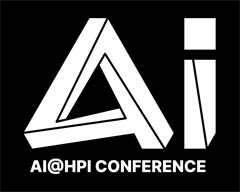New Creative Centre for Serious Games in France
 Valenciennes (FR), August 2009 - In the north of France, a new centre for serious games is being established at the initiative of the local Chamber of Commerce and Industry (CCI). The target group will be creative companies, professional training schools, and IT students. Jean Menu, Director of Digital Development at the Valenciennes Chamber of Commerce and Industry, spoke with Kirsten Seegmüller of CHECK.point eLearning about the focus of his project.
Valenciennes (FR), August 2009 - In the north of France, a new centre for serious games is being established at the initiative of the local Chamber of Commerce and Industry (CCI). The target group will be creative companies, professional training schools, and IT students. Jean Menu, Director of Digital Development at the Valenciennes Chamber of Commerce and Industry, spoke with Kirsten Seegmüller of CHECK.point eLearning about the focus of his project.
Jean, what exactly are you planning to do in your serious games centre?
Jean Menu: This project will establish an IT centre, or more precisely, a centre for animation and serious games. We want to give companies, research institutes, and professional training schools the opportunity to cooperate in one place and learn from each other in order to improve the products they develop. It was initiated by the Chamber of Commerce and Industry of Valenciennes and is being supported by the region Pas de Calais.
Why did you want to establish this centre in the first place?
Jean Menu: I think that the market for serious games is still emerging, but tomorrow it will represent a great opportunity for today's video game industry all over Europe. As for Valenciennes, I want to attract new companies and offer new valuable jobs.
But don't you already have schools for animation?
Jean Menu: Of course we do. Twenty years ago, the CCI started to build up three important animation schools: At Supinfocom students learn the techniques of animation, at Supinfogame they create video games, and at the Institut Supérieur du Design (ISD) they study all about game design. These three schools taken together have around 600 registered students, and they will not only be part of our centre, but they will also get into contact with research teams as well as companies who offer trainee programs.
Will this centre be open to the public?
Jean Menu: Actually, it has been planned as a purely professional platform for creative companies, designers, and game developers, as well as for sponsors, researchers, and teachers. This, in fact, already represents a very large and important public.
Which sort of content is suitable for a serious game?
Jean Menu: There is a wide range of applications possible - for example instruction and training, marketing, and communication, as well as health, environmental and defence topics.
Which role do serious games play in today's instruction?
Jean Menu: Modern games are built on the basis of classic pedagogic methods, especially repetition, and will serve as a complement to them. As TV did not replace cinemas or newspapers, games will never replace conventional training, but will be used in addition to the common methods and media. This way, serious games can enrich today's teaching.
Do you think that serious games are already accepted in the world of education?
Jean Menu: In Europe, the most advanced country in using serious games in education is definitely Great Britain. In France, we have had a lot of commissions and conferences on the topic, but I get the impression that things are moving faster here now and that our government is ready to take the necessary steps.
How can serious games be promoted?
Jean Menu: In my opinion, games always have to respond to a B-to-B model, which means that they always have to fulfil the demand of a company, sponsor, school, or community who want to use them. I myself would have loved to learn trigonometry on a computer.
Are games only interesting for children and young people, or do they also correspond to the needs of adults, like employees and managers?
Jean Menu: I can see the video game market move in that direction. On its way to a mass market, more and more serious games will be created for adults. The growing number of elderly people also constitutes a very promising potential audience.
 2024 neigt sich dem Ende zu und damit starten die Vorbereitungen für das nächste Jahr. Welche Trends werden in 2025 die L&D Branche prägen? Was sind die größten Herausforderungen für Personalentwickler:innen und wie können sie ihnen begegnen? Nehmen Sie sich fünf Minuten Zeit!
2024 neigt sich dem Ende zu und damit starten die Vorbereitungen für das nächste Jahr. Welche Trends werden in 2025 die L&D Branche prägen? Was sind die größten Herausforderungen für Personalentwickler:innen und wie können sie ihnen begegnen? Nehmen Sie sich fünf Minuten Zeit!








